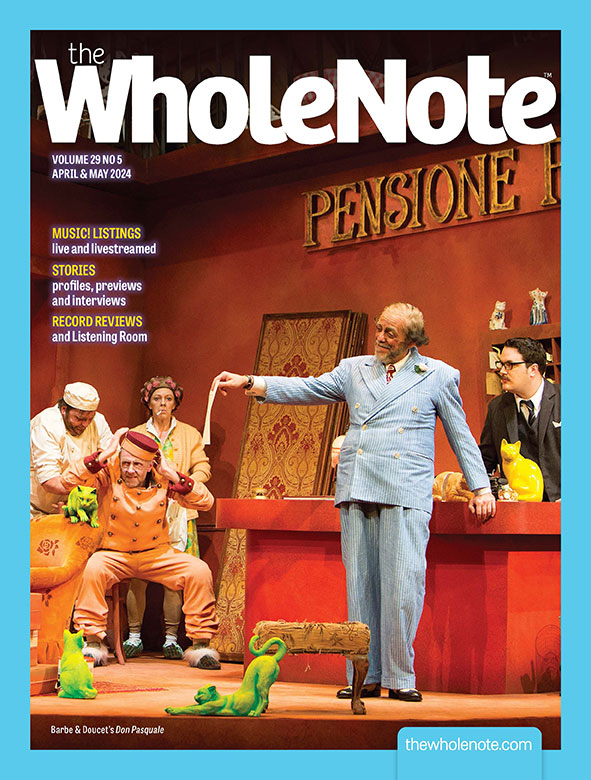Rainbow Chasing
People who have watched this magazine grow and change over the decades have seen us add other strands to our core commitment: to paint as a comprehensive picture as we can of live local music as it happens. Our BLUE PAGES came first — this month’s is the 14th iteration. A couple of years later we added our CANARY PAGES every May — an attempt to give choirs and prospective choristers an opportunity to find each other and new audiences. (Bit of trivia, we started out calling it the Choral YELLOW pages but a kindly lawyer advised us not to play with fire.) Our GREEN PAGES came next — not so much a commitment to things ecological as a nod to the verdant fact of summer music making.
And now, as we chase some rainbow ideal of full spectrum usefulness, it is music education, in all its forms, that has us choosing ORANGE as a colour to symbolize this brave new quest.
First installment of our ORANGE PAGES came in March, second comes next issue. Whereas in the first we tried to get a bit of a feel for who’s out there in the world of continuing education — private teachers, studios, community music schools — this time round we’re planning to start looking at the topic of full-time music-centred education at the secondary and post-secondary level.
Here’s the twist: this is a quest like no other before it. Because its starting point will be not what schools choose to say about themselves, but rather the questions that you, the prospective student, should have the confidence to ask.
All a bit cryptic? Never mind. All will be revealed.
And meanwhile, speaking of chasing rainbows, this is an issue of The WholeNote that sparkles like a prism in the autumn sun. Great writing, lots of candour, much as always to do and hear. We are happy to have you along for the great musical ride!



